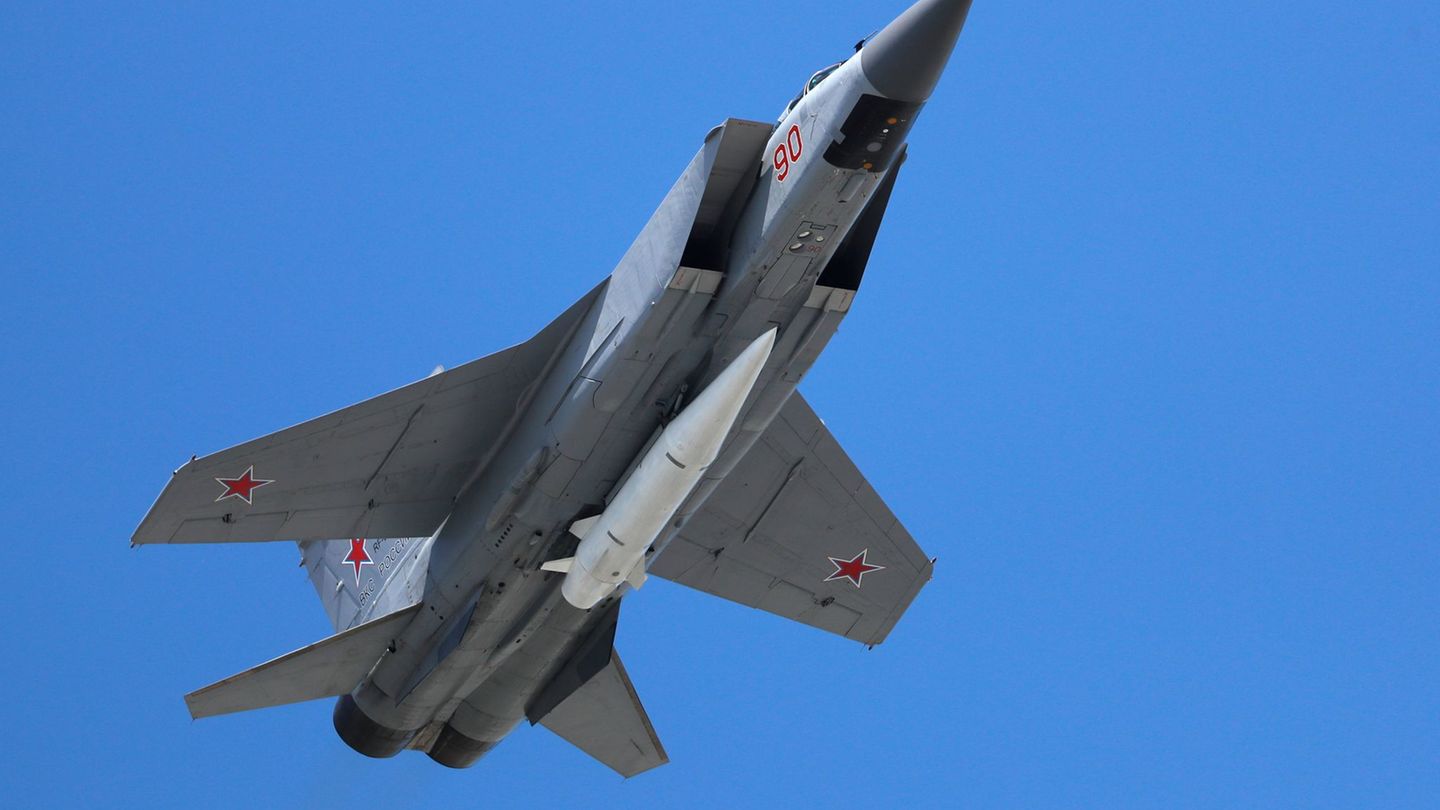Kristina Lunz is an expert on feminist foreign policy. She helped develop the guidelines according to which the Federal Foreign Office also wants to focus more on women’s and human rights issues. In an interview with star the activist explains what makes feminist foreign policy different – and why it’s not about imposing values on other countries.
Ms. Lunz, what are the effects of feminist foreign policy?
Feminist foreign policy asks different questions – and develops different solutions. Traditional foreign policy assumes, for example, that a state’s security is primarily achieved through military means. In addition, she focuses on economic relations. Women’s and human rights are treated as secondary. A feminist foreign policy takes a look away from the state and its apparatus. It focuses on the safety and well-being of everyone, especially women. The security and stability of the situation within a country or region is therefore not measured by military strength, but by the question of how secure women can live.
What follows?
From this follows, for example, the realization that the participation of women is central when it comes to overcoming conflicts in the long term and successfully shaping peace processes. Identifying and empowering such women as actors is part of feminist foreign policy. Armament agreements with states generally do not improve the situation for the women and families living on site. The fact that the situation of women is acknowledged to be relevant for security and freedom from conflict is also expressed by the UN Women’s Peace and Security Resolution, which has existed since October 2000. So the thinking behind feminist foreign policy is by no means new. What is new is that guidelines are being developed at state level from this knowledge, as is now the case in Germany.
Can you give an example that illustrates the difference between feminist and conventional foreign policy?
Consider Iran: women have been oppressed there for decades. In the past, however, the German federal governments have only taken a cautious stance on this point and have focused on economic relations. Germany and Iceland, together with Foreign Minister Annalena Baerbock, pushed the Iran resolution through the UN Human Rights Council. There will be an independent commission of inquiry into the violence against the protesters. This is a success of feminist foreign policy.
Will the regime in Tehran be impressed by this?
That’s not the main point at all. The important thing is that this commission will work. This is a signal that violence against the civilian population is being taken seriously. And it increases international pressure on the regime.
An accusation that is often voiced in connection with value-based foreign policy is that the West has no respect for other cultures and wants to impose its thinking on the rest of the world.
In fact, you hear that a lot – mostly from those in power or those who profit from such a regime. You won’t find a woman who says, “It’s nice to be oppressed, it’s part of our culture.” In addition, we know from research that the most important measure of whether a country is violent internally or externally is the level of equality. Feminist foreign policy also focuses on strengthening women’s and human rights because it is the only way to sustainable peace and stability.
But if a country is economically stable – thanks to good trade relations with Europe, for example – then the situation for the population improves much more quickly.
The good trade relations with President Putin have not made much of a difference in the people of Russia. And this is not an isolated case: Studies show that the most important factor for peace and happiness is not the gross domestic product. But the question of how equal people live together within society. Therefore, the focus must be on this factor. The triple-down effect, i.e. the assumption that the economic wealth of a country and its leadership rubs off on the entire population, has been invalidated and refuted in recent years. You can see it here in Germany too: the rich are getting wealthier – but the poorer parts of the population are not, on the contrary. Poverty is increasing even though the economy is growing.
For twenty years during the Afghanistan mission, the focus was on strengthening women’s rights and equality in the country. With the withdrawal, these efforts came to a de facto end. What should have gone differently?
When negotiations with the Taliban began in Doha, women and civil society organizations made it very clear how they wanted to be involved. However, that did not happen. They agreed to make concessions to the Taliban in the course of the negotiations – and women’s rights were seen as an acceptable compromise.
With a feminist foreign policy, women’s rights would never have become a bargaining chip
According to the motto: Can you do without it?
It was certainly never formulated that way, but we know the result.
And that would have looked different with a feminist foreign policy?
You don’t know. But with a feminist foreign policy, it would never have happened that women’s rights become a bargaining chip that people are willing to sacrifice for a compromise.
How credible can the feminist Foreign Minister Annalena Baerbock appear internationally when a law like Paragraph 218 is still in force in Germany, which makes abortion a criminal offense?
Sure, it’s a scandal that abortions in Germany are still regulated by criminal law and not by health law. And it’s also a point where a country that advocates a feminist foreign policy runs into credibility problems. Nevertheless, it is important that feminist foreign policy is included in the coalition agreement. If you keep saying that you can only stand up for these goals internationally if you have already implemented them at home, then that is primarily an excuse for all those who do not want to change anything. But it’s true, we also need a feminist domestic policy. The Foreign Office is currently more progressive than domestic policy in its work on reproductive rights.
A feminist foreign policy traditionally also includes pacifism. Did the invasion of Ukraine change this position?
No, not in principle. However, a realistic analysis of what happened means that you cannot ignore the militarized state of the world. In 2021, global military spending will surpass $2 trillion. Only around six billion US dollars are currently being invested in the peacekeeping missions of the United Nations. This is a blatant mismatch. Most of the money is invested in potential violence – that’s what guns are – and an infinitesimal part in potential peace. This is the state of our society. And as long as it stays that way, there will always be wars and violent conflicts.
Because the guns have to be used?
Yes. Or to put it more soberly: high investments in the potential for violence logically promote the outbreak of violence.
What does that mean now? Are arms deliveries compatible with the guidelines of feminist foreign policy?
That means: In view of the fact that we live in a hyper-militarized society, there is no contradiction when people who are threatened by aggressive war and brute force are given the help they demand.
So with arms deliveries.
In support of self-defense, exactly. But feminist foreign policy does not only respond to short-term necessity. Yes, now it is important to supply arms to Ukraine. But in the longer term, we need to think about end-use control and how to advance nuclear disarmament so that a dictator like Putin can no longer threaten nuclear attacks. We must work to strengthen civil societies because they are the main actors when it comes to rejecting autocratic tendencies.
Does that mean that feminist foreign policy is an instrument that is used more vehemently or more cautiously, depending on the world situation?
No, feminist foreign policy wants the really big hit. The complete transformation of foreign and security policy priorities. We ask the toughest questions: How do we manage to create a more peaceful, safe world for all when, given the existing conditions, the number of autocracies is increasing?
How?
Even with feminist foreign policy, all the problems created by patriarchy will not be resolved in a matter of seconds. But we have to rethink. In contrast to traditional foreign policy, feminist foreign policy invests a great deal of time and resources in finding alternatives. In the past ten years, the number of armed conflicts has almost doubled; the number of people fleeing has risen from 40 to 80 million, plus global warming. There is no way we can continue as before. The crises are blatant and traditional approaches have not mitigated them. Feminist foreign policy also means that you have to get creative and go different ways.
Source: Stern
I have been working in the news industry for over 6 years, first as a reporter and now as an editor. I have covered politics extensively, and my work has appeared in major newspapers and online news outlets around the world. In addition to my writing, I also contribute regularly to 24 Hours World.




